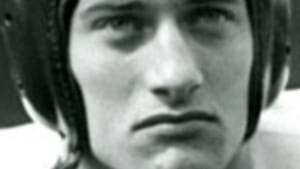Stay in the Loop
BSR publishes on a weekly schedule, with an email newsletter every Wednesday and Thursday morning. There’s no paywall, and subscribing is always free.
They were big-time, in the best sense of the word
Death of a 'Mungerman'

It’s hard to believe today, but there once was a time when the University of Pennsylvania football team — not the Eagles — was the hottest sports ticket in Philadelphia; when Penn was known as “the Notre Dame of the East”; when Penn’s sell-out crowds at Franklin Field led the nation in attendance; when Penn’s pre-season training camp was crowded with reporters from the New York papers; and when Penn professors fought each other for season tickets, to be relinquished only at death.
The man who defined that era — a 16-year period that began before Hitler’s Munich pact of 1938 and lasted after America’s Korean War ended in 1953 — was a walking paradox. Head coach George Munger was a humble man who produced arrogant football teams. He was, wrote Collier’s magazine, “shy, inarticulate, slightly goofy-looking.” He wore thick glasses. He was a poor speechmaker who never gave pep talks. As a football tactician, he was merely average. Yet he attracted superb players and inspired total devotion from them.
In retrospect, Munger’s secret was simple: He loved his players, and they reciprocated. In an age when coaches emulated marine drill sergeants, Munger conceived of himself as a teacher and adviser. In an age of social snobbery on Ivy League campuses, he recruited Poles, Slavs, Irish, Italians, Jews, and blacks without regard for their backgrounds. He treated his players like adults — and, consequently, the players who gravitated to Penn tended to be men rather than boys.
Doctors and lawyers
Munger’s mature approach to football especially appealed to hardened World War II veterans (among them Chuck Bednarik, later the legendary Eagles center), who had already witnessed death and destruction overseas and were in no mood to be treated like children by anyone, last of all a football coach.
Yet Munger’s greatest source of pride lay not in the thrashings his players administered to the likes of Army, Navy, Wisconsin, and North Carolina, but the fact that his bruising “Mungermen” had for the most part grown up into genuinely gentle men just like himself. At a reunion of his players in 1992, Munger brandished a news clip reporting that barely 50 per cent of the nation’s college football players graduated.
“We graduated more than 90 per cent of our players,” he reminded his listeners. “Yet we were forced to give up big-time football.” Then, gesturing toward a banquet room filled with successful businessmen, lawyers, doctors, and dentists, he added: “Look at these guys and what they’ve done with their lives. Fifty years later, my lads have stood the test of time.”
Jewish All-American
Munger died in 1994, and many of his lads have since followed him. The annual Mungerman brunch — where his surviving players swap stories, exchange hugs, and honor the departed — has become, in the words of its organizer, Bernie Lemonick, a “last man’s club.”
Lemonick himself — aka “the last of the Jewish All-Americans” as a guard on Penn’s 1950 team — epitomized the best qualities of the Mungermen: solid, capable, and determined but also sweet, humble, and approachable. By day he was a real estate executive, but Lemonick was better known as the keeper of the Munger flame, who devoted his considerable managerial talents to organizing Mungermen reunions and assuring that his teammates kept in touch with one another and passed on their legacy to younger generations of Penn men, like me.
Even if you weren’t a Mungerman, you could always learn something at these brunches. At one such gathering, I discovered that the great Chuck Bednarik’s ancestors came from the same Slovakian town as my ancestors.
Recruiting with a priest
At another, I learned Munger’s simple yet brilliant secret for recruiting the sons of Polish and Slavic coal miners who were terrified that their boys would lose their Catholic faith if they enrolled at such a cosmopolitan university in a major city: On his recruiting trips to the coal country, Munger made sure to bring along the priest from Newman Hall, Penn’s Catholic student center. As soon as the parents saw Munger coming up their front walk, accompanied by the priest in his cassock and biretta, the battle was won — especially when the priest assured the parents that their son could live in Newman Hall, where the priest would see to it that he attended mass daily.
Bernie Lemonick failed to outlive his “last man’s club”; he died last Friday of Alzheimer’s, at the age of 87. Now others will carry the Munger torch, just as Bernie did for George Munger. The youngest of the Mungermen graduated from Penn in 1956, which means they’re about 80 now; so the Mungermen gatherings could continue for another ten years or more. And when the last Mungerman is gone, of course, their university will endure.
“The blossom cannot tell what becomes of its aroma,” wrote the 19th-century minister Henry Ward Beecher, “and no man can tell what becomes of his influence.” It’s a fitting epitaph for George Munger, and for Bernie Lemonick, too.
To read Dan Rottenberg's October 2014 column about the aftermath of Penn's Munger era, click here.
Sign up for our newsletter
All of the week's new articles, all in one place. Sign up for the free weekly BSR newsletters, and don't miss a conversation.
 Dan Rottenberg
Dan Rottenberg